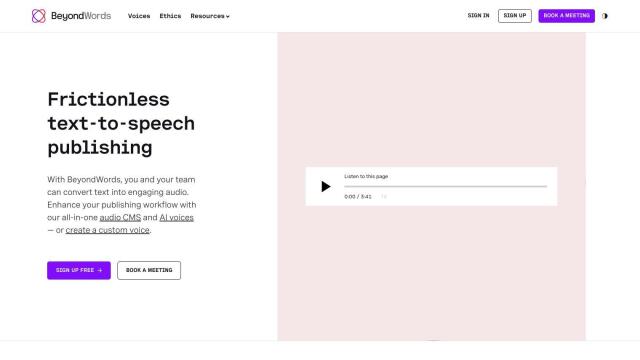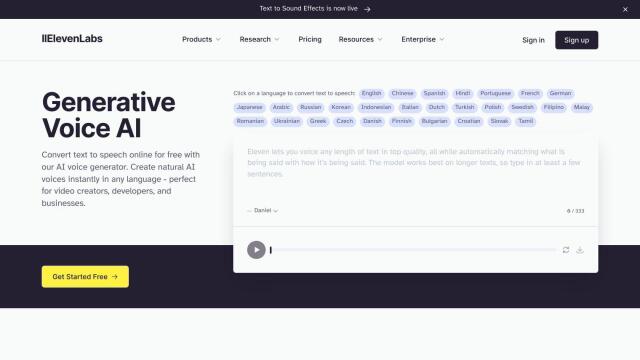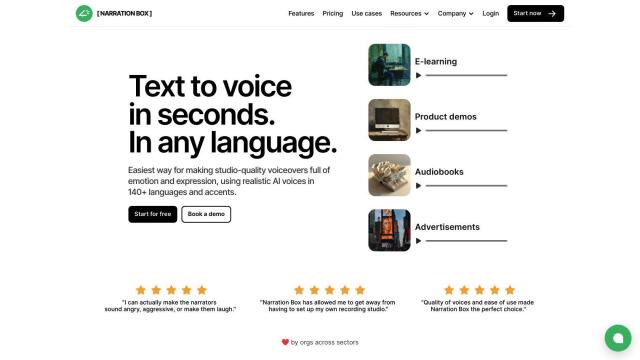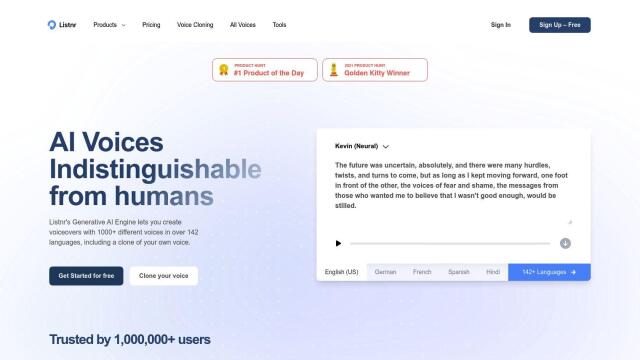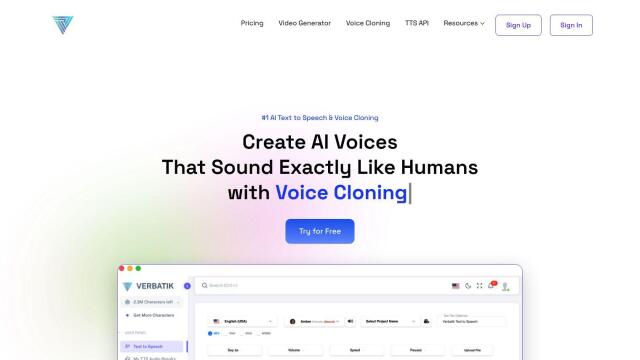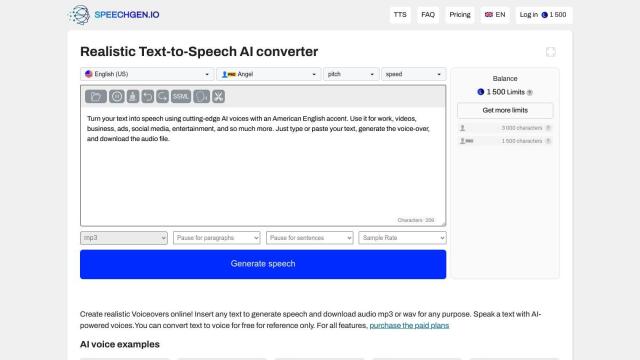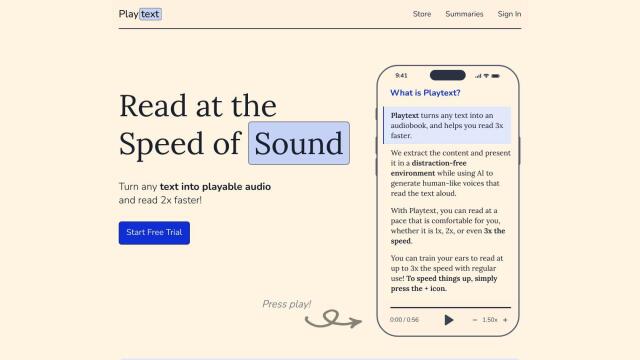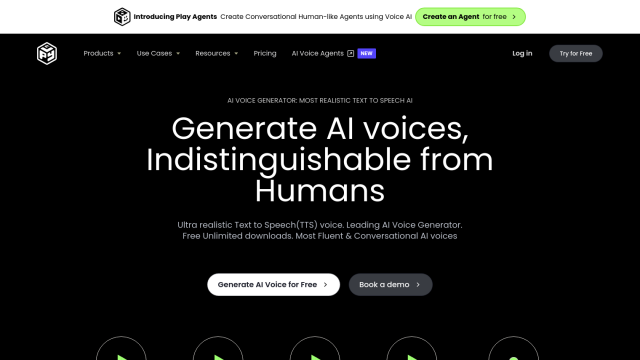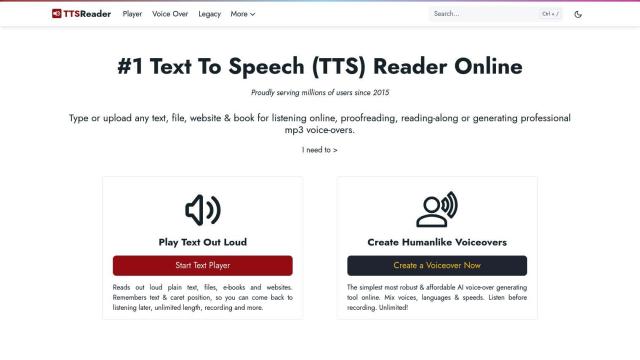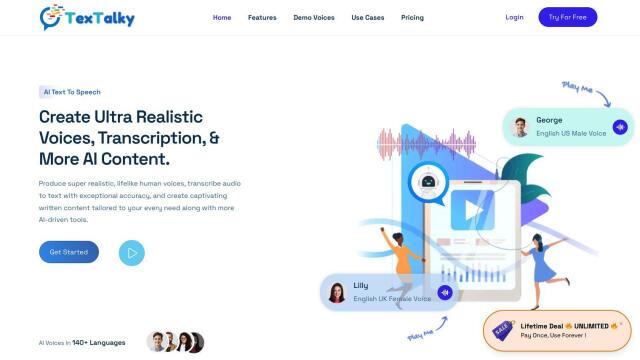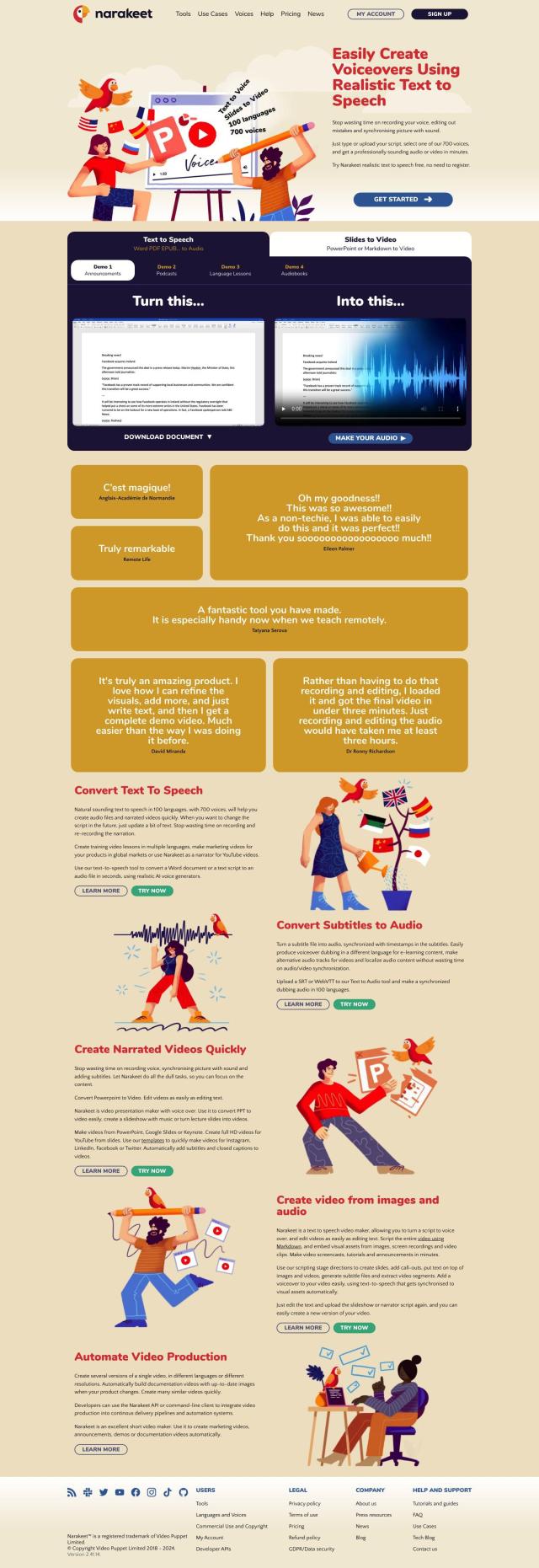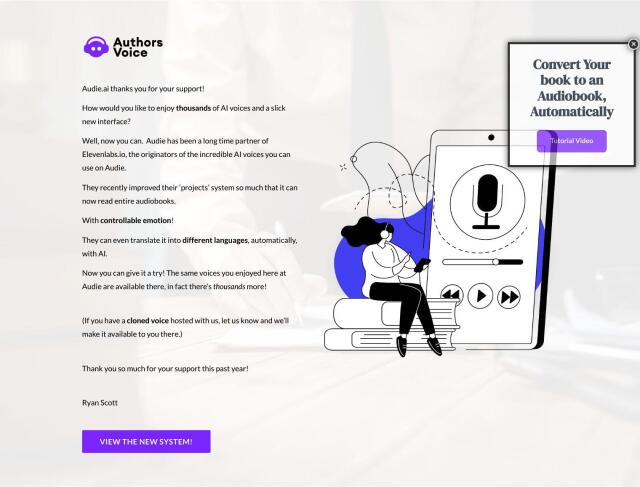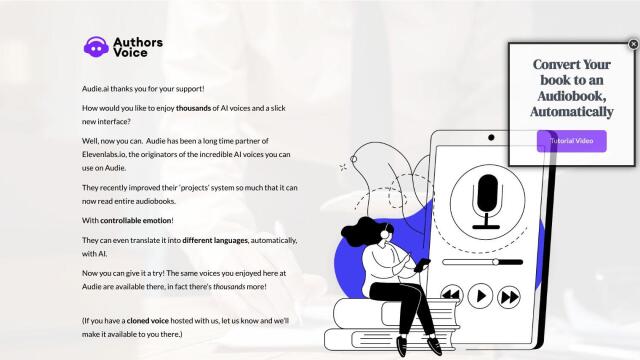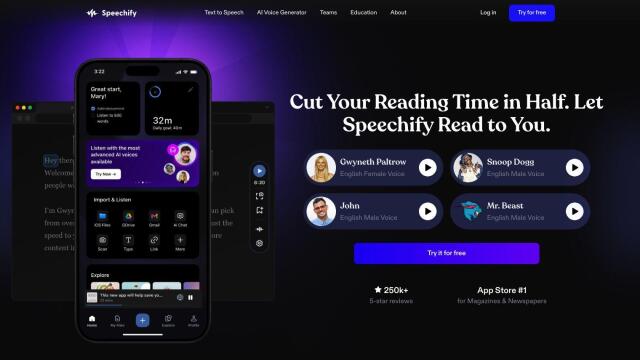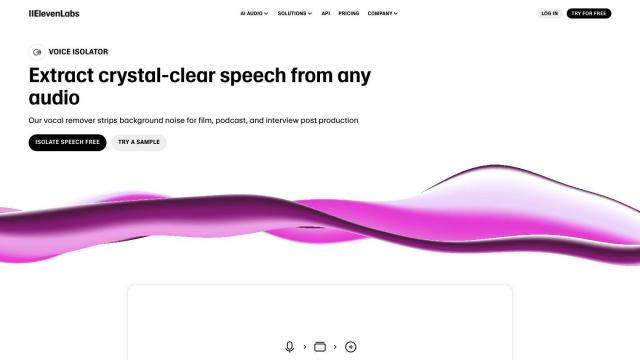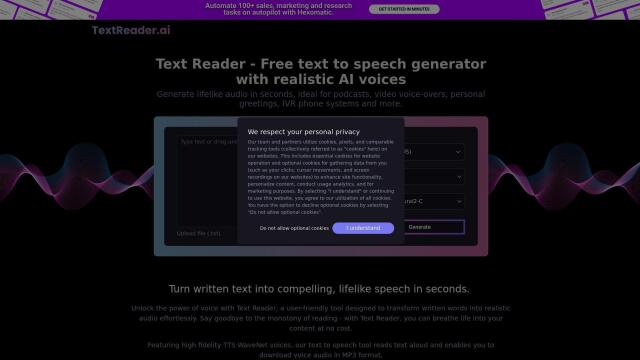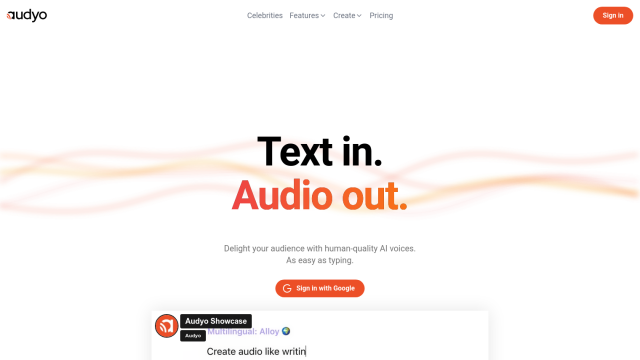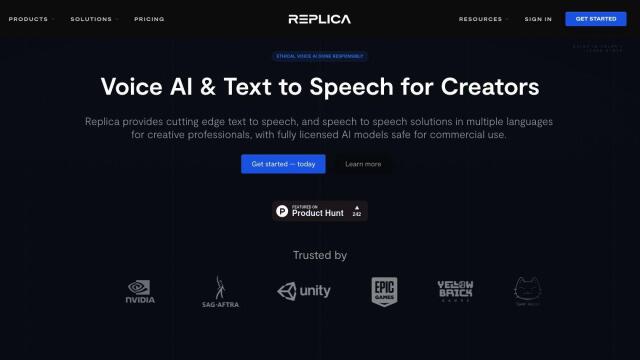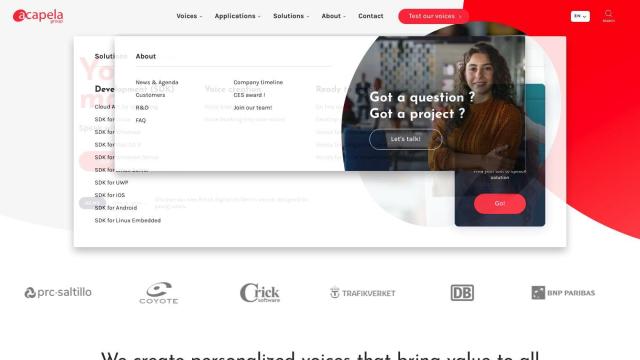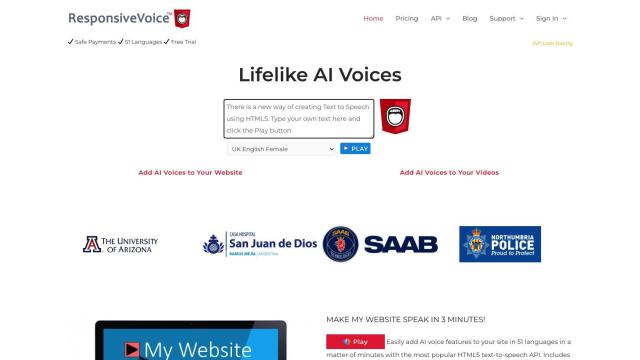Question: Can you recommend a tool that can convert web pages, PDFs, and books to speech, and also offers customization options for the listening experience?

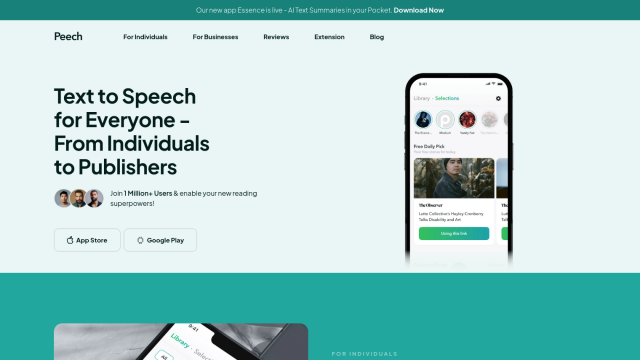
Peech
If you want a converter that can turn web pages, PDFs and e-books into speech and that offers some control over the process, Peech is a strong contender. It can convert to audio in more than 50 languages and supports several formats, including web pages, PDFs and e-books. You can customize settings like speaking speed, language and theme mode for people with vision problems or who want to listen while doing something else. The tool also offers a Chrome extension and an iOS app, with an Android app in the works.

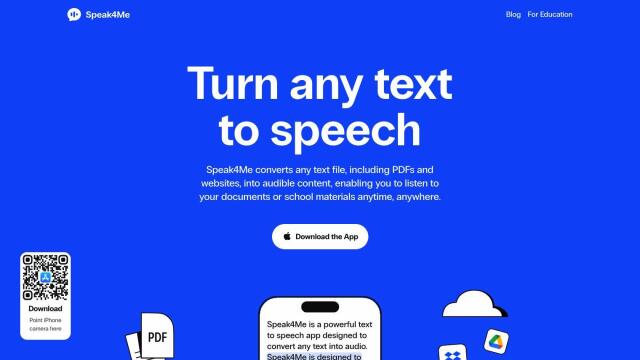
Speak4Me
Another strong contender is Speak4Me. It can convert text documents, including PDFs and websites, into human-sounding speech, with features like Scan and Listen, Read Web Pages Aloud and Listen to PDFs. It offers more than 80 natural-sounding voices in 25+ languages and lets you speed up the audio for better concentration and understanding. The tool is geared for people with dyslexia, ADHD or other reading difficulties, and it's free for schools and offers custom pricing for businesses.


Audioread
If you want a tool that fits more into your workflow, check out Audioread. This AI-powered tool can convert written documents into an audio version and offers hyper-realistic voices for long-form listening. It works on multiple platforms, including a web app, browser extensions and mobile apps. Audioread also generates a private podcast RSS feed so you can subscribe and listen to your content in your favorite podcast apps.

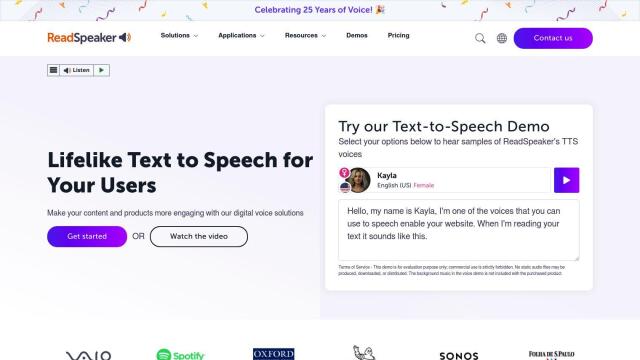
ReadSpeaker
Last, ReadSpeaker offers a full-featured text-to-speech tool with customizable brand voices and support for multiple languages. It also can highlight text and translate it simultaneously, which is good for accessibility and learning support. With a variety of integrations and a pricing plan starting at $4 per month, ReadSpeaker is a good option for individuals and institutions.

